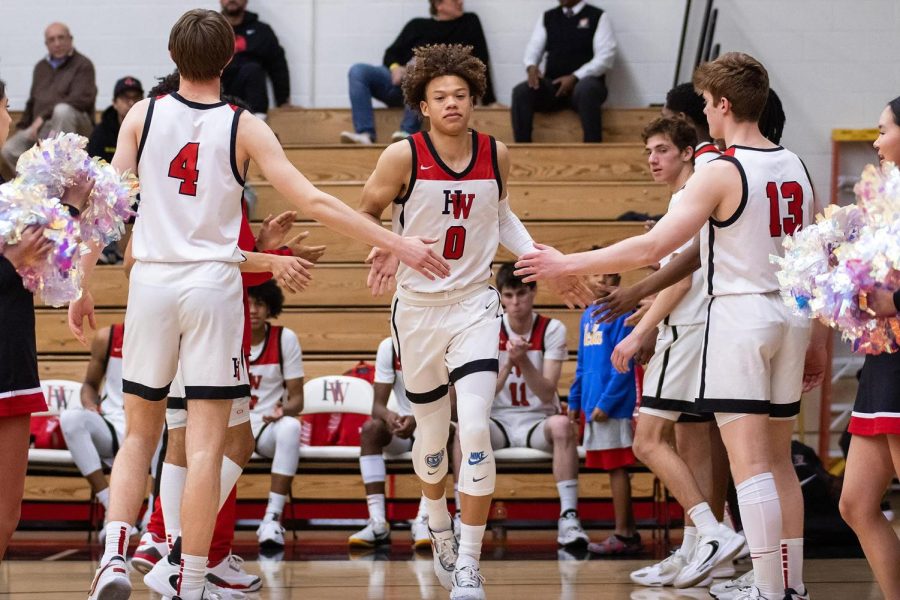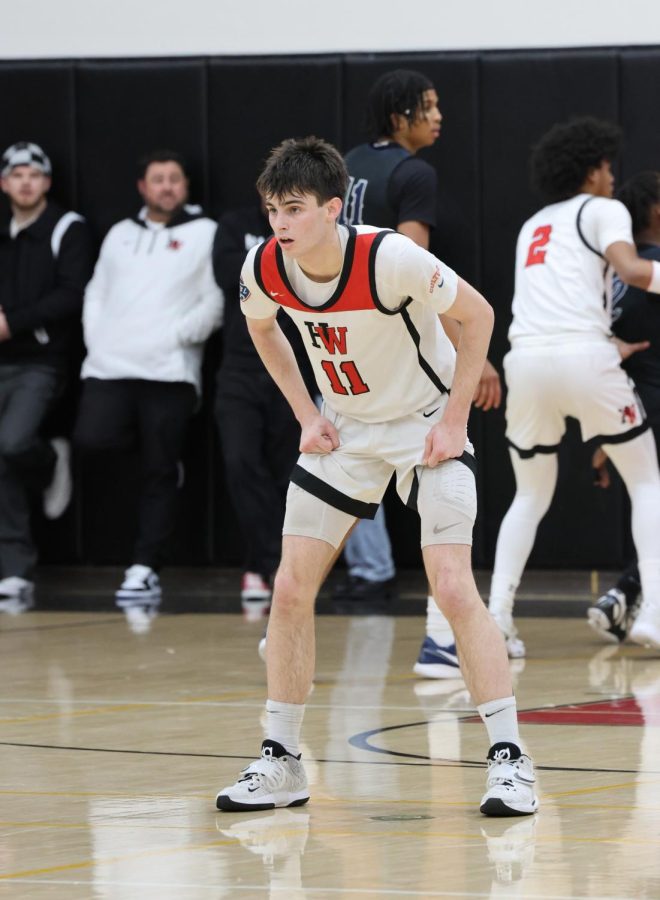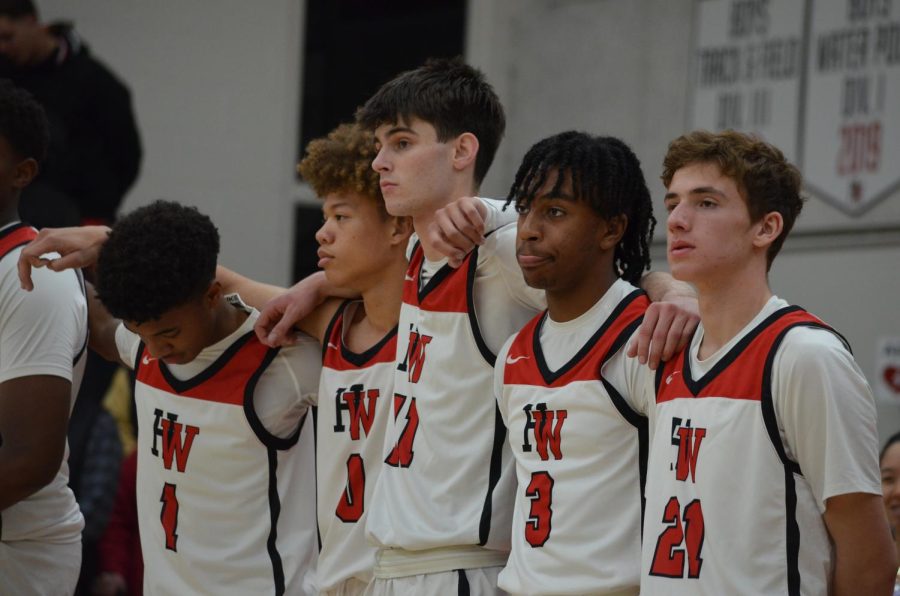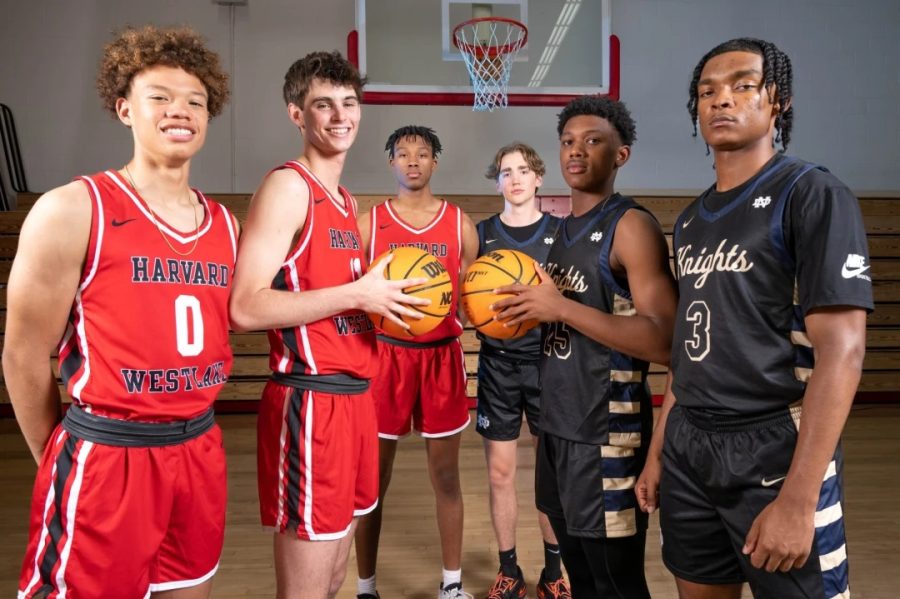Sports writer Grant Nussbaum sat down with NBA player Jason Collins to discuss what it will be like to be the first openly gay male to actively participate in a major professional sports league. This interview was printed on May 28 in this year’s final issue of Big Red sports magazine.
Read more: “Sports world reacts to coming out announcement by Jason Collins ’97“
Q: How different do you think things would have been for you had you come out when you attended high school?
A: My senior year in high school was 1997. The country has changed a lot since then. In fact, the country has changed a lot in the last five years. A lot of it – especially with “Don’t Ask, Don’t Tell” being introduced in the ’90s, and then being repealed by President Obama, and some the states in this country recognizing gay marriage and marriage equality – wasn’t the case in 1997. Slowly, more and more people are coming to that point of acceptance and tolerance and understanding. It was time for me in my private life, and it was time for this country. Because of the people who came before me, whether it be Dave Kopay in football, John Amaechi in basketball, Martina Navratilova in tennis, Robbie Rogers in soccer, Brittney Griner, and so on. Each person who steps forward continues that conversation and fosters that culture of acceptance and tolerance. That’s important for equality.
Q: What was it like for you to muster up the courage to come out on such huge stage?
A: For me, I haven’t really looked at it as courage. I looked at it as something that needed to be done. I’ve always been a “lead by example” kind of guy. If something needs to be said, I’ll say it. Something needs to be done, I’ll be that guy that shows you that example, I’ll walk the walk. I had reached that point in my private life. My family already knew, my friends already knew. Once you get a taste of what life is like when you take off that mask, it gets tougher and tougher to put that mask back on. I needed to be genuine.
Q: With the leadership it took to break this barrier in sports, what do you have to say about leadership in general?
A: I think everybody has a point where they realize that it’s make or break time. Trust me, I was in the figurative classroom waiting for someone to step up, while I waited on the sideline cheering for them. But nobody else was raising their hand in the metaphoric class. For so many of us, you get to the point where you have to make a choice, where you can go with the crowd, or you can make a stand on principle. This is going to make me happier in my life. Perhaps this is going to make a positive change in someone else’s life, culture, or something else. When you’re trying to be happy and affect that positive change, sometimes you just have to put yourself out there. Sometimes you’ll be surprised – I was amazed by the response. There are people waiting on the sideline like I was. You’ve got to put yourself out there.
Q: Since coming out, you’ve been referred to as the “Jackie Robinson” of gay players in professional sports. Do you see yourself as that figure? What’s it like for you to get those comparisons?
A: I don’t even want to compare what I did to Jackie Robinson – what Jackie Robinson did, it was monumental. All I wanted to do was live an honest, genuine life. Others are going to say what they want to say, but to me it all comes down to living an honest, genuine life.
Q: Going forward, what are your hopes and expectations for openly gay athletes?
A: I hope when the next person comes out the spotlight will be on them, but it’ll be less and less – that we will publicly acknowledge it, but that we’ll be like, “can you help us win games?” As athletes, can you help the team win games, or if it’s an individual sport, can you go out there like Martina Navratilova and kick butt? That’s what the focus is on – she’s a great athlete who happens to be gay. We need that acknowledgement, but at the same time, it shouldn’t be the focus.
Q: What impact did playing at Harvard-Westlake have on you as a player and as a person?
A: The Harvard-Westlake community is obviously a special community. There were some friends who have known for quite some time that I was gay. That trust, that family, that environment, it fosters trust and loyalty. With regards to the basketball team – in sports that’s what it’s all about, it’s all about winning. We went out there and got two state championships, while gaining lifetime friendships. Some of the guys on that team knew before the general public, and guarded my secret. It’s like a family, a Harvard-Westlake family. I have my Harvard-Westlake family, my Stanford family and my NBA family.
Q: What are your expectations going forward for your career?
A: I’m looking forward to signing a contract when free agency begins, and I’m looking forward to continuing my career as number 98. I’m still in the mindset that I know I can help an NBA team win basketball games. It might not necessarily be on the court, it might be as that solid veteran guy in the locker room, showing the guys what it means to be a leader. And when my name and number are called, I’ll be ready to take the court, and go out there and do what I’ve done my entire 12-year career – do the dirty work, do the small things that help the team be successful.
Q: If you were in high school today, would you feel comfortable coming out?
A: In 2013? I hope I’d have the strength to come out then. I know my family’s behind me. I was very fortunate that my family loves me unconditionally, but for so many, when you first come out, you don’t have that support. There are organizations out there that will raise you up and show you that you’re beautiful just how God made you. To put yourself what I put myself through, I don’t wish that on anyone. You’re at war with yourself – it eats at you mentally, physically, emotionally. To keep putting on that mask, I don’t wish that on anyone. I hope most people realize, just be yourself and live your life, and people will raise you up.
Q: What advice would you have for current gay athletes in high school?
A: Advice I would have for them is that while I would never judge, I’ll say, it feels so much better to wake up in the morning knowing that you’re not living with that mask on, that you don’t have to go out pretending. When you take that mask off, it’s the same you, the same mannerisms, the same values, the same wants and dreams. But you’re going to live an honest life, and you’re going to feel so much better for doing it. Yeah, it’s not going to be easy, but it’s well worth the journey.































